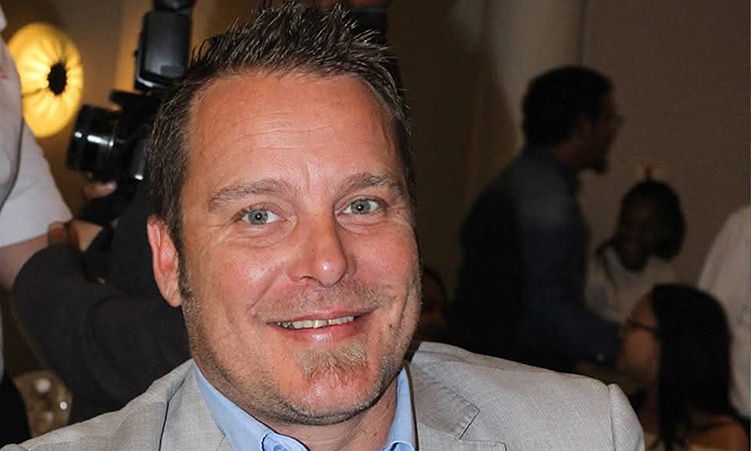THE head of the Evangelical Lutheran Church in Namibia (ELCRN) yesterday called on local authorities to consider the position of poor people before increasing water tariffs.
Bishop Zephania Kameeta made the call in response to the steep rate hikes announced by the City of Windhoek on Thursday. Kameeta said the poorest sections of society would not be able to pay their water bills, unless they were charged a special reduced price.The former National Assembly Deputy Speaker said electricity might be considered a luxury, “but without water, you cannot do anything”.Kameeta said the commercialisation of water provision would always negatively affect the poor, adding that some would be forced to leave their houses and become squatters.The Windhoek City council on Friday raised its basic water charge by 12 per cent, water usage tariffs by 10 per cent, and sewerage tariffs by five per cent.It said the increases had been necessitated by higher bulk water fees by NamWater, which raised its tariffs by 12 per cent in April.NamPower increased its bulk electricity charges by 15 per cent, which, the City said, had compelled it to increase its electricity unit charge by 12 per cent and pre-paid electricity fees by six per cent.Nored, the utility that provides power in the northern regions, increased its power tariffs by 4,5 per cent on Friday.It is likely that NamWater and NamPower’s increase in bulk tariffs, which will force many local authorities to charge their residents more, will worsen the situation in several towns, which are already hugely indebted to the two parastatals.Towns in arrears are putting the blame on residents who do not pay their accounts, while residents say the problem is caused by mismanagement on the part of town councils.Meanwhile, the National Society for Human Rights (NSHR) says it is “deeply disturbed” by the increase in water and electricity tariffs.The NSHR said the move, which would negatively affect the impoverished majority of Windhoek’s population, should be strongly condemned.The City of Windhoek estimates that the average monthly water cost for a household in Windhoek is in the region of N$210, but water consumption varies between different suburbs.Approached for comment, NamWater’s Communication Manager Johannes Shigwedha said the main reasons behind the price increase were inflation and the increasing cost of equipment.Bulk water tariffs were raised by 12 per cent last year, and by 14 per cent the year before.”We have to adjust the costs every year.There’s a rule that we can increase the tariffs every year, but not by more than 20 per cent,” said Shigwedha.He said 12 per cent was not enough to cover NamWater’s operational costs, but it was a decision by Cabinet that they had to live with.”To be realistic, to maintain all our operations it [the increase] should be more than 20 per cent,” he said.He cited a pipeline to Swakopmund as an example of NamWater’s expenses.The 70-kilometre-long pipe had to be replaced, and one kilometre cost N$1,5 million, he said.Kameeta said the poorest sections of society would not be able to pay their water bills, unless they were charged a special reduced price.The former National Assembly Deputy Speaker said electricity might be considered a luxury, “but without water, you cannot do anything”.Kameeta said the commercialisation of water provision would always negatively affect the poor, adding that some would be forced to leave their houses and become squatters.The Windhoek City council on Friday raised its basic water charge by 12 per cent, water usage tariffs by 10 per cent, and sewerage tariffs by five per cent.It said the increases had been necessitated by higher bulk water fees by NamWater, which raised its tariffs by 12 per cent in April. NamPower increased its bulk electricity charges by 15 per cent, which, the City said, had compelled it to increase its electricity unit charge by 12 per cent and pre-paid electricity fees by six per cent.Nored, the utility that provides power in the northern regions, increased its power tariffs by 4,5 per cent on Friday.It is likely that NamWater and NamPower’s increase in bulk tariffs, which will force many local authorities to charge their residents more, will worsen the situation in several towns, which are already hugely indebted to the two parastatals.Towns in arrears are putting the blame on residents who do not pay their accounts, while residents say the problem is caused by mismanagement on the part of town councils.Meanwhile, the National Society for Human Rights (NSHR) says it is “deeply disturbed” by the increase in water and electricity tariffs.The NSHR said the move, which would negatively affect the impoverished majority of Windhoek’s population, should be strongly condemned.The City of Windhoek estimates that the average monthly water cost for a household in Windhoek is in the region of N$210, but water consumption varies between different suburbs.Approached for comment, NamWater’s Communication Manager Johannes Shigwedha said the main reasons behind the price increase were inflation and the increasing cost of equipment.Bulk water tariffs were raised by 12 per cent last year, and by 14 per cent the year before.”We have to adjust the costs every year.There’s a rule that we can increase the tariffs every year, but not by more than 20 per cent,” said Shigwedha.He said 12 per cent was not enough to cover NamWater’s operational costs, but it was a decision by Cabinet that they had to live with.”To be realistic, to maintain all our operations it [the increase] should be more than 20 per cent,” he said.He cited a pipeline to Swakopmund as an example of NamWater’s expenses.The 70-kilometre-long pipe had to be replaced, and one kilometre cost N$1,5 million, he said.
Stay informed with The Namibian – your source for credible journalism. Get in-depth reporting and opinions for
only N$85 a month. Invest in journalism, invest in democracy –
Subscribe Now!










